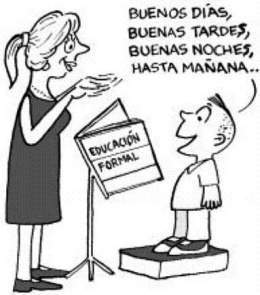Since ancient times, having good manners denoted social distinction, elegance, ethical preparation and moral soundness.
Thus we see, for example, how despite his dementia, Don Quixote, the knight-errant in the work written by Miguel de Cervantes, gave his squire wise advice about the correct positions to assume.
“Sancho, the first thing I ask you is to be clean, and to cut your nails without letting them grow (…) Go slowly; speak calmly, but not in a way that seems to be listening to yourself.”
“Eat little and dine less (…) Be temperate in drinking, considering that too much wine neither keeps a secret nor keeps a word. Keep in mind, Sancho, not to chew two cheeks, or burp in front of anyone, «he stressed.
And it is that at all times, society has been governed by principles that regulate and make coexistence more pleasant, and although many have been simplified over the years, that does not mean their disappearance.
The stress of daily life has had an impact on its breakdown, but there is no doubt that up to now courtesy, the desire to please others and adequate formal education constitute well-applauded elementary practices.
Therefore, the threat represented by the lack of civility and appropriate habits that not a few individuals manifest when relating to their peers at home, school or work, in the provision of services and in public places is worrying.
The problem has become a predominant ballast in contemporary times, hence the claim of national and international pedagogical institutions to implement or resume related educational programs.
Magic words like ‘thank you’, ‘please’, ‘excuse me’, ‘good morning’, ‘see you later’… are being used less and less.
It is also frequently forgotten to adopt behaviors as simple as helping an elderly person when crossing the street, giving up a seat to a pregnant or physically handicapped woman, and even asking for permission when passing between detainees.
Every day we see how collective property is attacked: written walls, doors of institutions that resound due to the way they are thrown, battered buses and public telephones victims of savage actions.
In the same way, we are witnesses of minors speaking to their teachers, professors and adults in general, and even interrupting conversations that are not in keeping with their age. And what to say about the use and abuse of obscene words.
Reversing such a situation is a long and difficult task that is the responsibility of not only the school. The conscious support of the family and society as a whole is also needed.
And above all, it is urgent to set an example. In order to have that educated nation that we so long for, it is necessary that in the individual order each one examines himself —whether of the generation.
Translated by Casterman Medina de Leon
